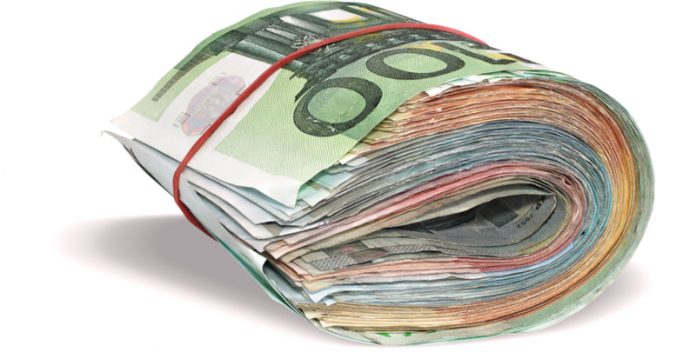The previous week saw the pound close 1.3% lower against the euro as pound traders digested a hat-trick of disappointing data and cautious commentary from the Bank of England. However weak demand for the euro on the final trading day of the week meant that the pound euro exchange rate finished just 0.1% lower on Friday at €1.1393.
| What do these figures mean? |
|---|
|
When measuring the value of a pair of currencies, one set equals 1 unit and the other shows the current equivalent. As the market moves, the amount will vary from minute to minute. For example, it could be written: 1 GBP = 1.13990 EUR Here, £1 is equivalent to approximately €1.14. This specifically measures the pound’s worth against the euro. If the euro amount increases in this pairing, it’s positive for the pound. Or, if you were looking at it the other way around: 1 EUR = 0.87271 GBP In this example, €1 is equivalent to approximately £0.87. This measures the euro’s worth versus the British pound. If the sterling number gets larger, it’s good news for the euro. |
The pound had a busy week last week thanks high impacting economic releases and commentary from Bank of England Governor Mark Carney. Market participants learnt that UK wage growth remained constant at 2.8%, slightly short of the 3% forecast. Meanwhile inflation dipped to 2.5% in March, down from 2.7% in the previous month. Finally, retail sales declined -1.2%, well short of the -0.6% decline forecast by analysts. The good news is that earnings overtook inflation, however particularly harsh weather and a challenging climate meant consumers stayed away from the shops. To top the week off BoE Governor Mark Carney suggested that a hike was still coming although he didn’t want to get “too focused on precise timing”. Investors pushed back the odds of the next rate hike, which sent the pound lower.
| Why do raised interest rates boost a currency’s value? |
|---|
| Interest rates are key to understanding exchange rate movements. Those who have large sums of money to invest want the highest return on their investments. Higher interest rate environments tend to offer higher yields. So, if the interest rate or at least the interest rate expectation of a country is relatively higher compared to another, then it attracts more foreign capital investment. Large corporations and investors need local currency to invest. More local currency used then boosts the demand of that currency, pushing the value higher. |
This week investors will look to UK GDP data, which analysts are expecting will have dipped to 0.3% from 0.4% quarter on quarter due to weather related disruptions. Analysts are forecasting that annual rate will remain constant at 1.4%.
Brexit is also expected to re-surface again this week after the EU rejected all of UK Prime Minister Theresa May’s solutions to the Irish border problem. No solution to this problem means that a battle within May’s conservatives between those who want to stay in the EU Customs Union and those who don’t is likely to erupt, potentially leaving May in a vulnerable position.
| How does political risk have impact on a currency? |
|---|
| Political risk drags on the confidence of consumers and businesses alike, which means both corporations and regular households are then less inclined to spend money. The drop in spending, in turn, slows the economy. Foreign investors prefer to invest their money in politically stable countries as well as those with strong economies. Signs that a country is politically or economically less stable will result in foreign investors pulling their money out of the country. This means selling out of the local currency, which then increases its supply and, in turn, devalues the money. |
PMI Data In Focus Prior To Thursday’s ECB Rate Decision
The euro was broadly lower on Friday as investors looked ahead to the upcoming week which sees a raft of influential data being released, in addition to the European Central Bank policy decision. Since the last ECB meeting, eurozone economic data has disappointed, estimates for inflation has declined and fears over a global trade war have emerged. As a result, economists are not expecting any mention of a winding down of the current bond buying programme until around June.
Today investors will be watching the purchasing managers index reports to see whether the data shows that growth momentum in the eurozone is slowing.
|
This article was initially published on TransferWise.com from the same author. The content at Currency Live is the sole opinion of the authors and in no way reflects the views of TransferWise Inc. |





